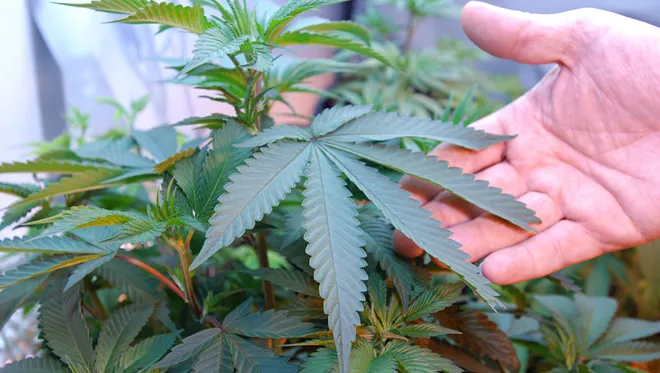Arizona Marijuana Laws: The numerous legislative changes from state to state may have made it more challenging to understand the marijuana regulations in your state. In Arizona alone, several distinct marijuana legalisation or decriminalisation legislation have been submitted, rejected, or passed during the past few years.
Does Arizona have a marijuana law?
Yes. Arizona legalised the use of marijuana for recreational purposes in 2020, and recreational marijuana sales started in 2022. The lawful possession of up to one ounce of useable marijuana and the home cultivation of up to six plants by adults (age 21 and above) are both permitted.
After Proposition 207 to adopt the Smart and Safe Arizona Act was approved by voters during the general elections with 60% of the vote, Arizona became the 13th state to legalise recreational marijuana for adult use on November 3, 2020.
As of November 30, 2020, when the election results were declared, the possession, cultivation, and use of cannabis became lawful.
However, dispensaries won’t be able to sell cannabis for recreational purposes until they have the necessary licences, which is anticipated to happen by March 2021.
Arizona Marijuana Laws:
The marijuana regulations in Arizona recently experienced a major overhaul. A proposition that effectively legalised the recreational use of cannabis in Arizona was approved in November 2020.

With effect starting on July 12th, 2021, this law decriminalises some forms of marijuana use and possession while also enabling those who have already been convicted to apply for record expungement. Both medical and recreational marijuana are currently legal in Arizona.
Act on Medical Marijuana in Arizona:
Arizona Medical Marijuana Act was narrowly approved by voters in 2010 by just over 50%. The Arizona Department of Health Services was tasked with developing a medicinal marijuana programme in response to the public initiative (Proposition 203).
Involvement in Arizona’s medical marijuana programme is around 200,000.
The Medical Marijuana Act permits individuals with a written certification from a doctor to possess and use up to 2.5 ounces of marijuana for personal use in order to treat a variety of symptoms brought on by conditions like cancer, glaucoma, AIDS, Crohn’s disease, and Hepatitis C.
Marijuana used for recreational purposes
Until 2021, it is legitimate. Arizona Smart and Safe Act became Proposition 207 in November 2020. Effectively, this law made it lawful for adults 21 and older to use marijuana recreationally. When the state governor issues an official proclamation, some provisions of this law will take effect; other provisions will take effect in the spring of 2021.
For recreational use in Arizona, a person may possess up to 1 ounce of marijuana or 5 grammes of concentrate, or up to 2.5 ounces with a medical ID card. Additionally, according to Prop 207, it is acceptable to grow up to 6 cannabis plants (or 12 in households with two or more persons).
Finally, Arizona will start selling recreational marijuana in stores in March 2021.

The recreational marijuana law marks a substantial change from Arizona’s prior state law, which forbade the use, possession, or cultivation of cannabis for any purpose other than medical.
What Are the Penalties in Arizona for First-Time Weed Possession Offences?
First-time offenders in Arizona who possess less than two pounds of marijuana are often not sentenced.
They are instead put on probation. For first-time marijuana possession convictions, obligatory drug education or counselling is also required. However, anybody found guilty of possessing more than two pounds of marijuana will be sentenced to jail time and penalties.
What Penalties Apply if Marijuana Laws in Arizona Are Broken?
Despite Arizona becoming the fifteenth state in the US to legalise recreational marijuana, marijuana-related crimes still occur there.
The ability of an individual to cultivate, own, transfer, and use marijuana for recreational purposes is subject to certain restrictions under Proposition 207. Serious criminal consequences, including the possibility of a felony conviction, may result from breaking these statutes.
Is it acceptable to operate a vehicle while high on marijuana?
According to Proposition 207, “driving, flying, or boating while impaired to the slightest degree by marijuana remains illegal.” But it also notes that just because a person tests positive for marijuana metabolites does not necessarily mean they are impaired.
Currently, marijuana metabolites, which can linger in the body for weeks after the “high” has faded, are all that is required for drivers in Arizona to be found guilty of DWI.
According to Proposition 207, “a person with metabolites or components of marijuana in the person’s body is guilty… only if the person is also impaired to the slightest degree.”
A person who uses marijuana won’t be able to be prosecuted with driving while intoxicated days later unless law enforcement officials can also demonstrate the person was impaired, such as through a roadside test or observations of erratic or careless driving.